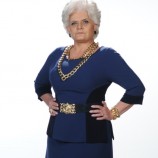Intense ties of affection are formed between parents and their children. The way that a child needs his parents is different to that of an adolescent. While in adulthood another type of relationship becomes possible. Parents have as much difficulty as children do in making the transitions from one stage to the next. At a certain level, we have to let go of being sons or daughters. If this does not happen naturally we become emotionally ill. If the relationship between parents and their kids after a certain age does not turn into a relationship between two independent adult people, something always goes badly. We find adults who relate with and regard their parents as perpetual parasites. Always draining, always asking, demanding, complaining, wanting to receive more and more. That which was normal and correct during childhood, when prolonged into adult life becomes unhealthy and dismal.
A person in childhood and during adolescence emotionally needs his/her parents. We are used to saying that he/she loves his parents. In reality it is only clear if someone truly loves us when this person does not depend upon us, does not need us. Then we can see if see if she appreciates our company, or if she is capable of genuine generosity, or worry of our well being. It is a hard thing to face when sometimes the adult son/daughter does not love their parents, only necessitates, uses, or takes advantage of.
On the other hand there are parents who do not want their kids to become adults. They want to be obeyed as if the kids were still children. They want to impose their moral values, their religion. They want to choose who the son or daughter will date, that they follow a determined profession. The parents as well, after their kids reach a certain age, need to learn to let go of being a parent. If the relationship does not gradually transform into a friendship, either the kids avoid the parent’s company, or they become emotionally ill. Eternally dependant kids, adults only in size, atrophied human beings.
In order for the parents to succeed in making this step, or be it, learn to put parenthood behind them, it is fundamental to cultivate their own life, that they have their own interests beyond that of a mother or father. This way, when you reach the age of “retirement” from the parental function, your life will not be empty because you will have other nurturing interests, other joys.
Related Articles
















